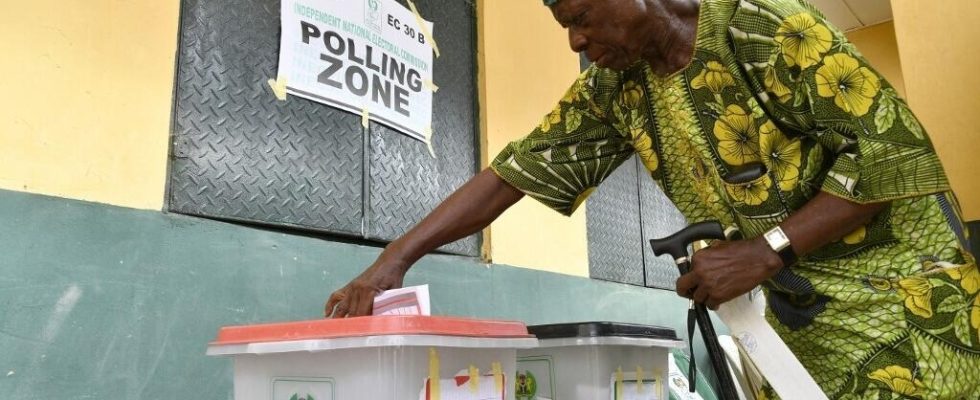This Saturday was an election day in eight states of Nigeria, but all the attention was focused on three of them: Bayelsa, Imo and Kogi where three Governors were putting their mandates back on the line. The vote was marred by numerous irregularities.
2 mins
With our correspondent in Abuja, Moses Gomis
Overall, voters did not travel much for fear of violence in and around the 10,470 polling stations concerned. Despite the mobilization in the three most scrutinized states of just over 92,000 police officers, five helicopters and fifteen armed speedboats, the vote was marred by incidents, intimidation and vote buying.
These were the first elections since the last elections last March. Although there were no deaths to report, the Independent National Electoral Commission nevertheless had a complicated day like every election in Nigeria.
Voting was thus suspended in five local governments in Kogi State. Pre-filled result sheets having been discovered in several stations where voting could resume today.
Violence and vote buying
As a result of the significant pre-election violence, participation is well below 50% in the three states. Due to widespread fear also among INEC agents, a large majority of offices opened very late, especially in Kogi State.
Distributions of tickets slipped hand to hand, secretly, or even in broad daylight in certain remote polling stations, but also of rice, after the vote. The Financial and Economic Crimes Commission has red-handedly arrested 14 persons mainly in Bayelsa State.
The equivalent of 12,800 euros was seized. A sum is derisory According to Mark Jackson of the Center for Election Analysis, which relies on the feedback provided by these 150 verifiers and observers deployed in the three states.
At 10 p.m. Saturday evening, however, more than 70% of the results from the voting units for these three gubernatorial elections were already posted online. Quite the opposite of the presidential election where the same IREV portal had a bug last February at the worst time. The lesson was therefore well learned by INEC.
